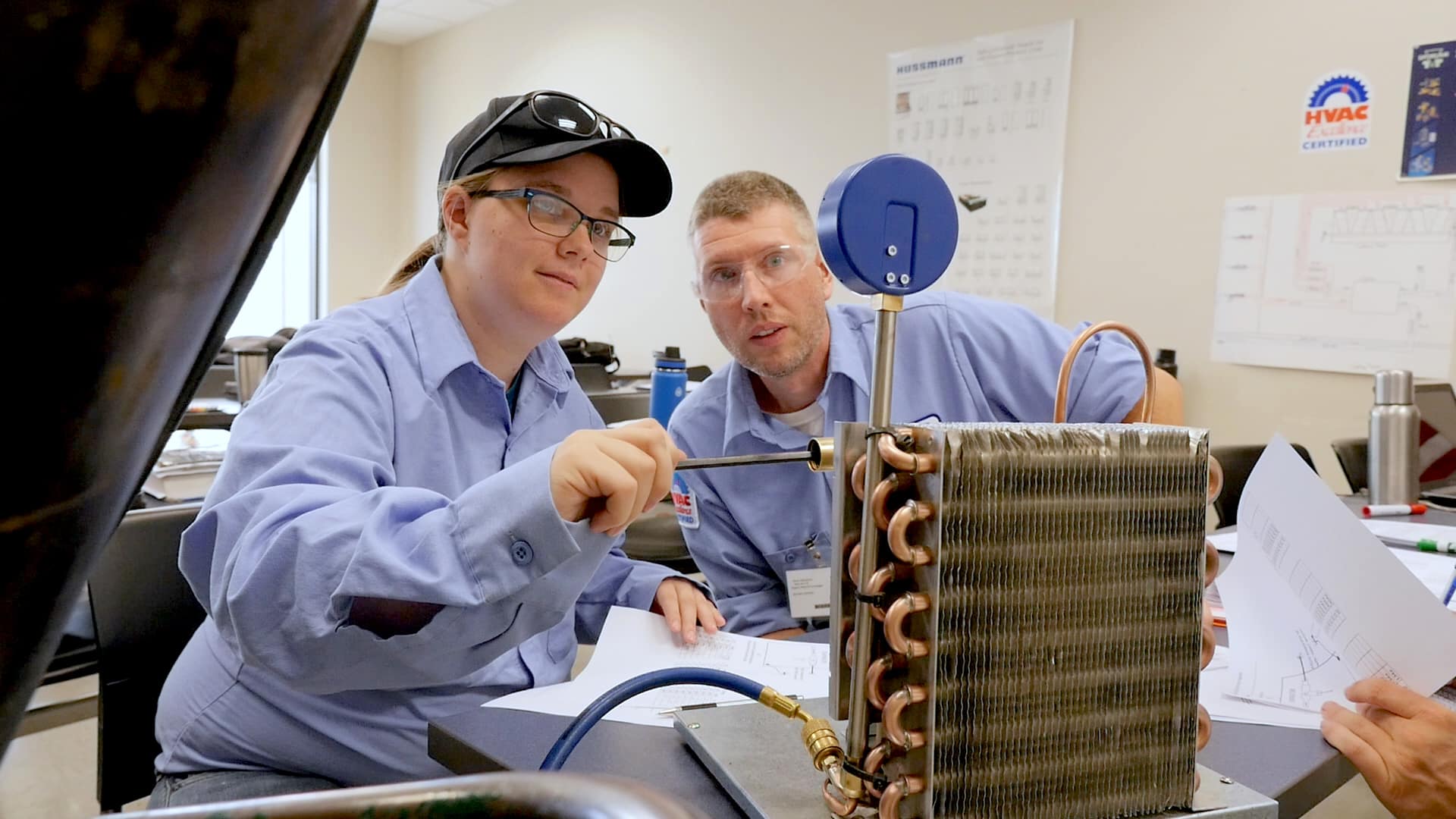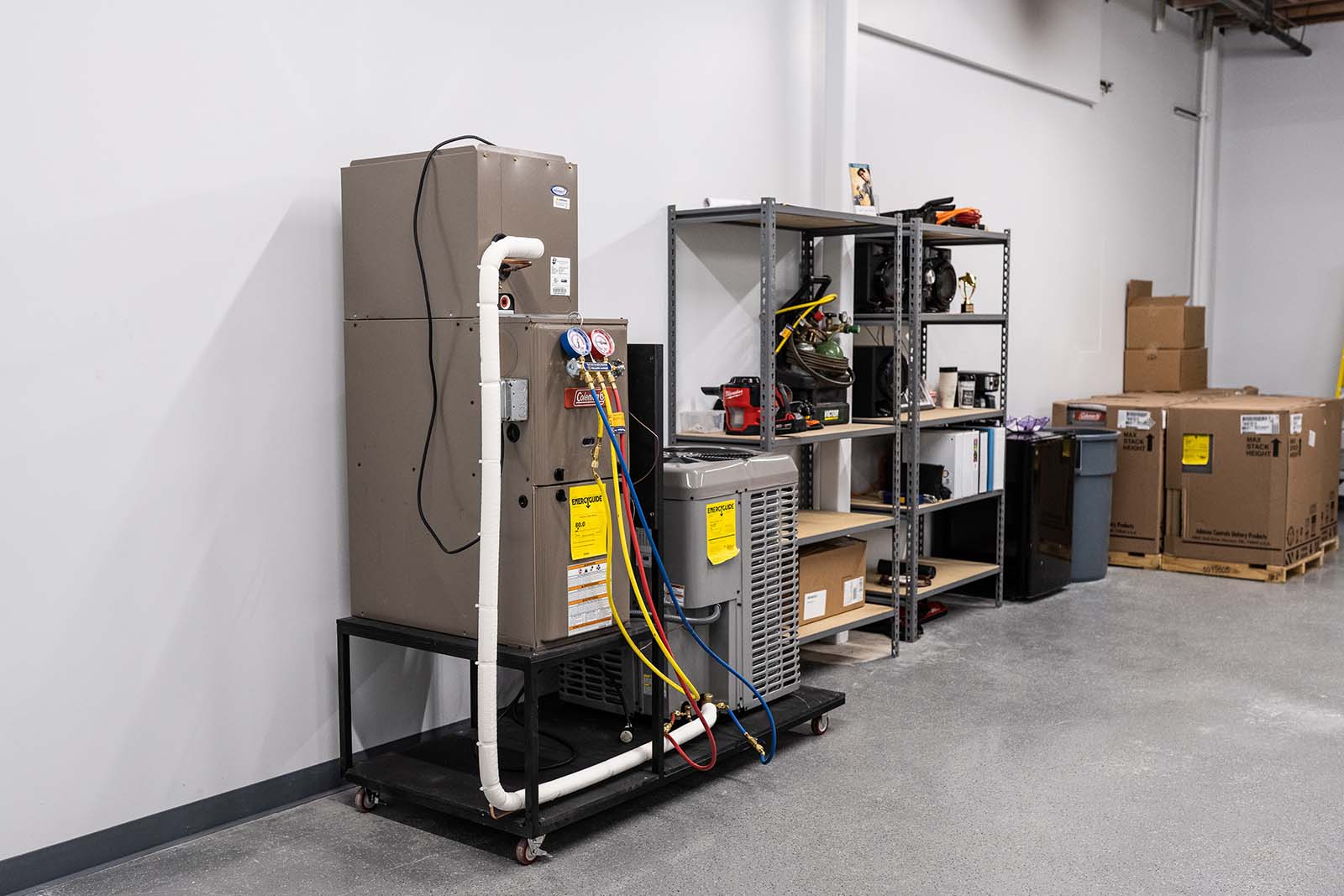Are you interested in heating, ventilation, and air conditioning? HVAC schools can help you start a rewarding career. This guide will tell you everything you need to know about HVAC schools.
What is HVAC?
HVAC stands for Heating, Ventilation, and Air Conditioning. HVAC systems are used in homes and buildings to provide comfortable indoor air. These systems control temperature, humidity, and air quality. HVAC technicians install, repair, and maintain these systems.
Why Choose a Career in HVAC?
A career in HVAC is a great choice. Here are some reasons why:
- High Demand: HVAC technicians are always needed.
- Good Pay: HVAC jobs offer competitive salaries.
- Job Security: HVAC systems are essential in many places.
- Hands-On Work: HVAC work is practical and rewarding.
What is an HVAC School?
HVAC schools teach you about heating, ventilation, and air conditioning. These schools offer programs to help you learn the skills you need. You will learn how to install, repair, and maintain HVAC systems.

Credit: atitraining.edu
Types of HVAC Programs
There are different types of HVAC programs. Here are some options:
- Certificate Programs: These programs are short and focused. They usually take less than a year to complete.
- Associate Degree Programs: These programs take about two years. They offer a deeper understanding of HVAC systems.
- Apprenticeships: These programs combine classroom learning and on-the-job training. They can last from three to five years.
How to Choose the Best HVAC School
Choosing the right HVAC school is important. Here are some tips to help you decide:
- Accreditation: Make sure the school is accredited. This means it meets certain quality standards.
- Curriculum: Look at the courses offered. Make sure they cover all the skills you need.
- Hands-On Training: Choose a school with plenty of practical training.
- Job Placement: Check if the school helps students find jobs after graduation.
- Cost: Consider the cost of the program. Look for financial aid options if needed.
Top HVAC Schools in the United States
Here are some of the best HVAC schools in the United States:
| School Name | Location | Program Type |
|---|---|---|
| Ferris State University | Big Rapids, Michigan | Associate Degree |
| Portland Community College | Portland, Oregon | Certificate and Associate Degree |
| Lincoln Technical Institute | Various Locations | Certificate and Associate Degree |
| Vatterott College | Various Locations | Certificate and Associate Degree |
| IntelliTec College | Colorado Springs, Colorado | Certificate and Associate Degree |
Online HVAC Programs
Online HVAC programs are a flexible option. They allow you to study from home. Here are some benefits of online HVAC programs:
- Flexibility: Study at your own pace.
- Convenience: No need to commute to a campus.
- Cost-Effective: Save money on travel and housing.

Credit: www.uei.edu
What Will You Learn in an HVAC Program?
HVAC programs teach you many skills. Here are some topics you will study:
- Basic HVAC principles
- Electrical systems
- Refrigeration cycles
- Heating systems
- Air conditioning systems
- Ventilation systems
- System diagnostics
- Safety procedures
Certifications and Licenses
After completing an HVAC program, you may need certifications. These certifications show that you have the skills needed for the job. Here are some common HVAC certifications:
- EPA Certification: Required for handling refrigerants.
- NATE Certification: Shows expertise in HVAC systems.
- HVAC Excellence Certification: Recognizes advanced skills.
Job Opportunities for HVAC Technicians
HVAC technicians have many job opportunities. Here are some places where you can work:
- Residential homes
- Commercial buildings
- Industrial facilities
- Hospitals
- Schools
- Government buildings
Salary Expectations
HVAC technicians earn good salaries. The pay can vary based on experience and location. Here is a general idea of what you can expect:
- Entry-Level: $30,000 – $40,000 per year
- Mid-Level: $40,000 – $60,000 per year
- Experienced: $60,000 – $80,000 per year
Continuing Education
HVAC technology is always changing. Continuing education is important. It helps you stay up-to-date with new systems and techniques. Many HVAC schools offer continuing education courses.
Frequently Asked Questions
What Do Hvac Schools Teach?
HVAC schools teach heating, ventilation, air conditioning, and refrigeration systems installation, maintenance, and repair.
How Long Is Hvac Training?
HVAC training typically lasts from six months to two years, depending on the program.
Are Online Hvac Courses Available?
Yes, many schools offer online HVAC courses for flexible learning.
What Certifications Do Hvac Schools Offer?
HVAC schools offer certifications like EPA Section 608, NATE, and HVAC Excellence.
Conclusion
HVAC schools are the first step to a rewarding career. They teach you the skills you need to succeed. With the right training, you can become a skilled HVAC technician. Choose the right school and start your journey today!

